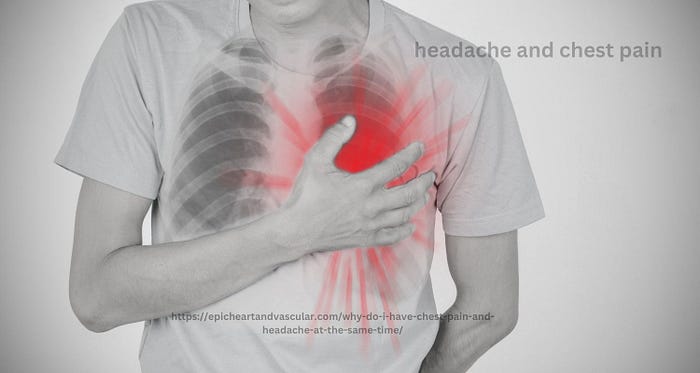Understanding Heart Valve Abnormalities on an Echocardiogram
An echocardiogram is a vital diagnostic tool used by doctors to assess the health of the heart. This non-invasive test uses sound waves to create an image of the heart, including the heart’s chambers, valves, and blood flow. One of the most common reasons an echocardiogram is performed is to check for heart valve abnormalities. But what exactly does it mean when your echocardiogram shows an abnormal result, and how does this relate to symptoms like a headache and chest pain weird feeling in the chest with no pain, burning lungs, or headache and chest pain?

What is a Heart Valve?
The heart is made up of four chambers: two atria and two ventricles. Between these chambers are heart valves that help regulate blood flow. The four heart valves are:
Mitral Valve: Between the left atrium and left ventricle.
Aortic Valve: Between the left ventricle and the aorta.
Tricuspid Valve: Between the right atrium and right ventricle.
Pulmonary Valve: Between the right ventricle and the pulmonary artery.
These valves are responsible for ensuring that blood flows in the right direction and that the heart works efficiently. Any abnormalities in these valves can lead to complications in the heart's function.
What Causes Heart Valve Abnormalities?
Heart valve abnormalities can result from a variety of factors, including:
Congenital Conditions: Some people are born with heart valve problems.
Infections: Endocarditis, an infection of the heart valves, can lead to valve damage.
Age-Related Degeneration: As people age, the heart valves may become stiff or calcified.
High Blood Pressure: Increased pressure can cause the heart valves to become weakened or damaged.
Heart Disease: Conditions such as coronary artery disease can affect the heart valves.
Types of Heart Valve Abnormalities
There are several types of heart valve abnormalities that may be detected on an echocardiogram:
Valve Stenosis: This occurs when a valve becomes narrowed, which reduces blood flow through the heart. The heart has to work harder to pump blood, which can lead to symptoms like shortness of breath, fatigue, and a feeling of pressure or tightness in the chest.
Valve Regurgitation: This happens when a valve does not close properly, causing blood to burning lungs leak backward. This can lead to an overload of blood in the heart and cause symptoms such as swelling, shortness of breath, and dizziness.

Prolapsed Valve: In this case, a valve, particularly the mitral valve, bulges into the chamber it’s meant to regulate. While often harmless, mitral valve prolapse can sometimes lead to more severe complications, such as regurgitation.
Infective Endocarditis: Infections can damage the heart valves, leading to complications. Echocardiograms are often used to detect this condition.
Symptoms Linked to Heart Valve Abnormalities
If you have a heart valve abnormality, you may experience symptoms like:
Weird feeling in the chest with no pain: This sensation can occur if the heart is struggling to pump blood efficiently due to valve issues.
Burning lungs: Shortness of breath caused by insufficient blood flow or fluid buildup in the lungs due to heart valve problems may give you a burning or tight feeling in the chest.
Headache and chest pain: These symptoms can result from decreased blood flow or the strain placed on the heart due to valve issues. In some cases, chest pain might feel like pressure or tightness, which can often be mistaken for heart-related issues.
How an Echocardiogram Helps Diagnose Heart Valve Abnormalities
An echocardiogram is one of the most effective ways to detect heart valve abnormalities. The test provides a clear, real-time picture of the heart's structure and function. The images produced allow doctors to see if the heart valves are functioning properly, if there’s any stenosis or weird feeling in chest no pain regurgitation, and whether there’s any damage to the heart’s structure.

If your echocardiogram comes back abnormal, it doesn’t always mean there’s a life-threatening problem. Often, mild valve abnormalities can be managed with medication and lifestyle changes. However, more severe cases may require surgery or other medical interventions.
When to Seek Help
If you’re experiencing symptoms like a weird feeling in the chest with no pain, burning lungs, or headache and chest pain, it’s important to seek medical attention. These could be signs of a heart valve issue or another underlying heart condition. An echocardiogram will help abnormal echocardiogram your doctor determine whether your symptoms are related to a valve abnormality or if there is another cause that needs to be addressed.
Conclusion
Heart valve abnormalities are a common cause of heart issues, and an echocardiogram is an invaluable tool for detecting these conditions. Symptoms such as a weird feeling in the chest with no pain, burning lungs, and headache and chest pain should never be ignored, as they can indicate a potential heart problem. If your echocardiogram shows an abnormal result, it’s essential to work closely with your healthcare provider to determine the best course of action. Early detection and treatment can significantly improve your heart health and overall quality of life.

 wevtcservice
wevtcservice 










